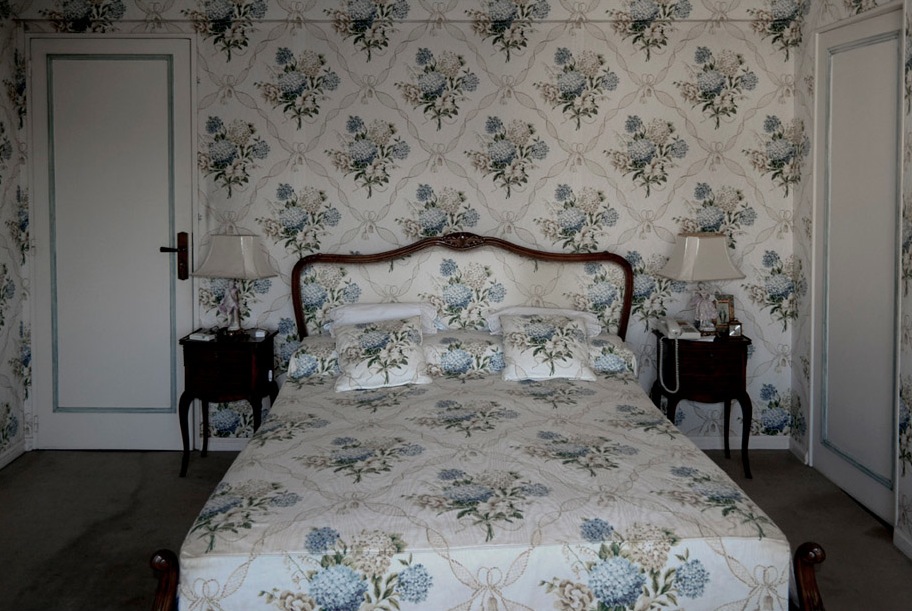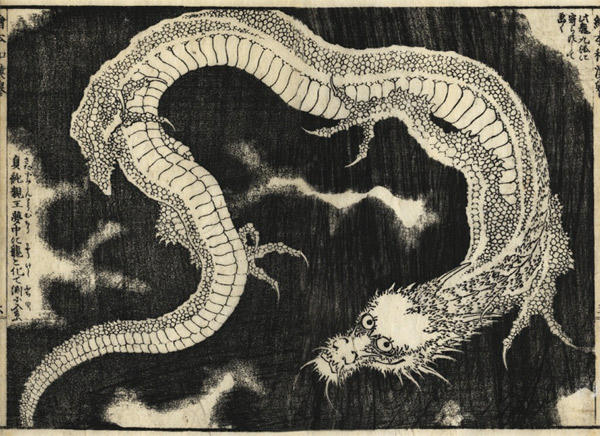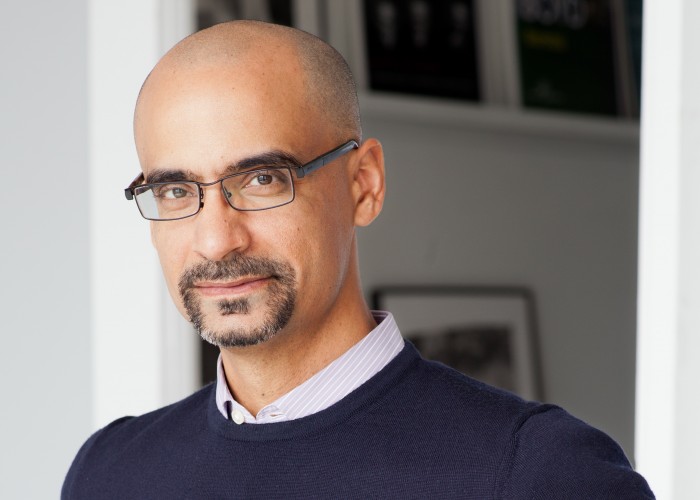The Reversal Spell
David Leavitt
The day that Paris was declared an Open City, I went to say goodbye to the Baron. He was one of my oldest friends. I’d known him since 1931, the year I’d come to Paris, a boy of nineteen living by his wits in a prostitution hotel on Rue Lepic. The Baron himself still lived, as he had his entire life, in a vast gloomy apartment on Avenue Mozart. Portraits of bustled women and narrow-snouted dogs hung on the walls. The piano wore a silk shawl of the sort that grandmothers draw around their shoulders in winter. For a long time the Baron had been rich, but he had lost most of his capital, including the Baroness, in the crash of ’29.
I could not remember a time when the elevator in the Baron’s building had worked. The staircase coiled round it like a turban, the treads worn smooth as beach glass. More than once I had tripped on those stairs, and since the last thing I needed right then was a broken ankle, I made my ascent as I imagined the Baron himself would, gingerly, gripping the rail.
“Who is it?” Mitzi asked when I knocked on the door.
“It’s Thad,” I said.
Only then did Mitzi undo the locks. “I’m sorry, Monsieur, we must be careful,” he said, shaking his oblong bald head. “Ah, Monsieur, who would have guessed it would come to this? This morning I saw smoke rising from behind the Ministry. I thought, It is a bomb. But it was only the functionaries, throwing bales of documents out the windows onto a bonfire.”
“Most of the government has left already,” I said. “They’ve gone to Tours. Will you be leaving, Mitzi?”
“I cannot abandon the Baron,” Mitzi said. “Ah, Monsieur, what else is there to say?”
There was nothing else to say. Tears ran down Mitzi’s cheeks, smearing the rouge he still applied to them each morning, in memory of the nights when aristocrats and journalists had flocked to hear him sing “Je Me Sens Dans Tes Bras Si Petite” in a Molyneux tea gown.
*
Except for the fragile light that pooled where a pair of velvet curtains did not quite meet—no wall in that old apartment was plumb—the library was in shadow. This was by design. On such occasions, the Baron preferred to remain invisible, as if to allow even a glimpse of his gaunt loins would be to show want of tact. I shut the door, switched on a floor lamp (the shade was fringed, singed) and stepped into the waxy spotlight. First I removed my jacket and folded in on a chair. Then I unknotted my tie. I hadn’t washed. I never did the mornings I visited the Baron. The clothes I wore were the ones I’d worn the day before, not rank but not fresh either. I took off my watch, undid my cuffs, rolled them up to my elbows, then stepped back, clearing my throat.
“A Scout is trustworthy, kind, obedient, cheerful, thrifty, brave, clean and reverent,” I said, yanking the tie free of the collar and draping it over the chair back.
No sound, not even a rustle.
“A Scout is trustworthy, kind, obedient, cheerful, thrifty, brave, clean and reverent,” I repeated, unbuttoning the shirt, taking it off and folding it atop the jacket. Now I was only wearing an undershirt, sleeveless, what the British call a vest.
“A Scout is trustworthy, kind, obedient, cheerful, thrifty, brave, clean and reverent,” I said a third time, pulling the undershirt up slowly, pausing for a few seconds while it was tangled around my head to breathe in its faint leathery smell. The smell gave me an erection. I knew the Baron could see it outlined in my trousers. I knew he could see the waistband of my boxer shorts just above the belt.
Once I had the undershirt all the way off, I wadded it up, and pitched it, like a baseball, in the Baron’s direction.
I’ve got good aim.
There was a faint shuddering then, so faint it was more sensation than sound, as if a pigeon had flown through an open window and was darting toward the ceiling. I switched off the lamp, gathered my clothes in a ball, and stepped out into the corridor. Mitzi went in as I went out. He patted me on the arm.
*
Please don’t misunderstand me. I didn’t do this sort of thing for a living. I wasn’t a leach. Plenty of people in Paris would have paid me good money for information they could have used against the Baron. I ignored their hints. I had scruples. This was part of my persona. I was the wide-eyed American, raised on glasses of cold milk and peanut butter sandwiches and the Boy Scout law. The first few times I visited him, the Baron even offered me money, which of course I refused, though I needed it, for to accept it would have been unworthy of a Boy Scout. That’s the story of my life: I had written myself into a corner.
In the bathroom, I washed my hands. The face I saw in the mirror didn’t impress me: standard-issue Anglo-Saxon, a little coarse. The cheeks were pink, the flesh potatoish in its stolidity. Add a little butter and you could have mashed it. And how ironic was that? My very Americanness, the quality I had come to Paris to lose, was what made me exotic in the eyes of the Baron, who was to me the true exotic. Perhaps in his adolescence he had befriended an American sailor. Or he’d gone to school with the son of the American ambassador. In any case, he had long since distilled that erotic memory to its most abstract essence: words, shapes, gestures. A time might come when even the human actor would be superfluous, when it would be enough to have some sort of machine set up to hurl wadded undershirts at him, one after another, like tennis balls.
Once I had dressed, I returned the library. In the interval Mitzi had opened the curtains. He had put the Baron to rights. The Baron was visible now, sitting in his favorite fauteuil, the arms of which three generations of cats had swatted down to batting. He wore an ascot and a smoking jacket. Burgundy paper lined the few walls that were not given over to books. The air smelled of tea and mildew and Jicky by Guerlain.
“My dear friend, sit down,” he said, as if I had just arrived, as if our encounter of five minutes before had never taken place.
I sat. It startled me, as it always did at this stage in the proceedings, to see how young the Baron was: two years younger than I, in fact. His air of elderliness was part affectation, part the inevitable consequence of having to bear, on his frail shoulders, the weight of such a great name. Poverty could bring curious reversals. The regions where the wallpaper was darker, for instance—at first I’d thought they were patches of damp. In fact, though, these were the places where the paintings had hung—the good paintings, long since sold.
He asked me when I was leaving. “Tonight,” I said. “Mrs. Davenport’s giving me a ride.”
“To Bordeaux?”
“To Tours.”
“Don’t waste your time with Tours. The government will be in Bordeaux within forty-eight hours.”
“Why?”
“They are running from the Germans. As you should be. Have you got your passport? Are your papers in order?”
“Why? I have no intention of returning home. I’m only going to the south. My plan is to wait and see.”
“But you can’t afford to.” He leaned toward me. “I am telling you this only because I don’t want you to be killed. In a year there will be no Europe.”
His expression was serious. He knew things I didn’t. “And what about you then?” I asked.
“Me? I shall stay here and guard”—he gestured at the library, the books with their foxed pages, the missing paintings—”all this. My legacy.” He laughed.
“And how will you live?”
“I don’t need much.”
He looked at me then. I can only call it a testing look. What Boy Scout worthy of the name would leave an old man to starve, even an old man of twenty-seven?
“Here,” I said, reaching into my wallet. “It’s not much, but it’s something.”
I had anticipated a wrangle over the money: that he would balk; that I would cajole; that he would accept it, finally, with the greatest reluctance, the greatest embarrassment.
Instead he snatched the bills out of my hand. He counted them, let out a sigh of mild disappointment, and slipped them into some interior pocket of his smoking jacket. And not a word of thanks. Who can fathom aristocrats? For all these years I had provided him, gratis, services for which I would have charged an ordinary bourgeois a hefty fee. And now I was giving him money! Who can fathom it?
It was time to leave. “Baron,” I said, standing, preparing to bow.
“Wait,” he said. From the table next to his chair he took a sealed envelope. “Don’t read this in front of me. Wait until you’re in the street.”
“Thank you.”
“Now go. Farewells should never be said in the present tense. They are to be anticipated and then remembered. The moment itself is nothing.”
I agreed with him about farewells. I’d never liked them. Out of the library I walked, out of the apartment (I didn’t want to say goodbye to Mitzi either), down the perilous stairs and across the foyer and through the doors that opened onto Avenue Mozart, eerily empty now that most of the Paris taxis and buses had been commandeered and driven to the front. Only once I was at the entrance to the Métro did I open the envelope. On a sheet of stationery imprinted with his crest, the Baron had written what appeared to be a poem. In English. The first stanza read:
Thy hair, as gold as grain,
Thine eyes, as green as corn,
Thy flesh, as great a plain
As ever kissed the morn!
God, why did he do it? For years, I had gone to such efforts for him! Always I uttered the words flawlessly, always I took care not to breach—for his sake—the rigid boundaries of the spell. And now this. A love poem. An atrocious love poem. Had he ever even seen the great plains? It was ludicrous.
At dawn, when Phoebus’ call
The wand’ring shepherd hears,
As drops of sunlight fall,
The God is shedding tears
I resisted the impulse to tear the poem up right then. Instead I folded it in thirds and shoved it into my breast pocket. At home, I packed in a fury. I hot-footed it from Paris to Bordeaux, then from Bordeaux to Lisbon, where I boarded a ship bound for New York, the poem all the while burning my breast, vexing me, urging me forward.
For one whose very name
Compels my lips to part!
Would that the soul could tame
The flesh, the blood, the heart!
Years later I returned. The Baron had committed suicide. Mitzi was nowhere to be found.
I still had the poem. Each time I read it, it enraged me the more, until I began to wonder if in fact that was the Baron’s intent. In witchcraft, I am told, there is such a thing as a “reversal spell,” one spell cast for the sole purpose of undoing another. In this case, though, which was the spell reversed? Was it the one I had cast on the Baron? Was it the one he had cast on me?
* *
Image: Belen Bejarano
[ + bar ]
Black Ball
Mario Bellatin translated by Andrea Rosenberg
1- BLACK BALL RELOADED
Author’s first look at the bande dessinée Black Ball
Yesterday I received some information about the Czech writer Bohumil Hrabal. I... Read More »
Dragon in Clouds
Juan Carlos Mondragón translated by Leah Leone
Until the middle of the afternoon of the day before yesterday, I thought I had a good angle for the article I... Read More »
Junot Díaz: “We exist in a constant state of translation. We just don’t like it.”
Interview by Karen Cresci
Read More »The Red and the Black
María Gainza translated by Jane Brodie
I’m scared. I’m sitting on a plastic chair waiting to see the doctor. It’s a cold spring morning and I’ve come... Read More »








 sending...
sending...